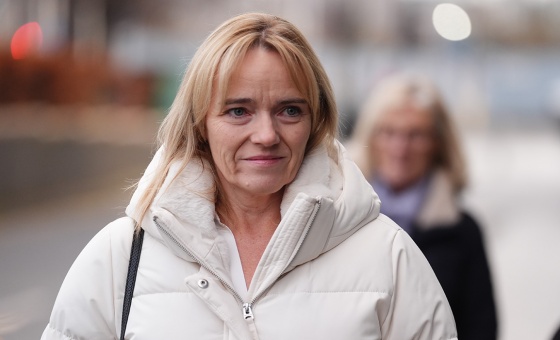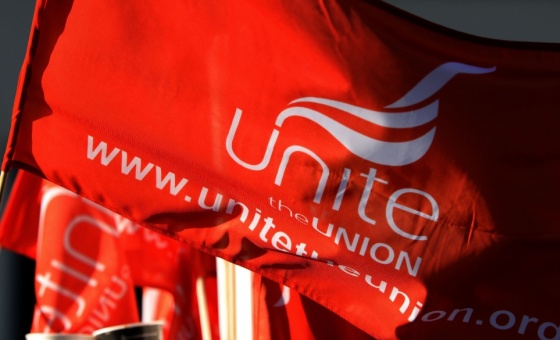This is the last article you can read this month
You can read more article this month
You can read more articles this month
Sorry your limit is up for this month
Reset on:
Please help support the Morning Star by subscribing here
ONE of the many benefits of the Black Lives Matter movement is that it has forced an increased reckoning with the corrosive legacy of colonialism. This is especially important in Britain, as the brutal history of the British empire casts a long and enduring shadow on present-day global dynamics.
We cannot talk about the present without former empires engaging in a process of recognition, apologies, returning what was stolen and reparations for past atrocities.
By 1921, the British empire ruled a population of between 470 and 570 million people, approximately one-quarter of the world’s people. It covered about 14.3 million square miles, about a quarter of Earth’s total land area.
This means that a large percentage of the world was subject to the extractive violence of British colonialism. The time has come for former empires to apologise for and take seriously the historical debt that they owe to the countries, communities and individuals who endured their cruelty.
Last week, the United Nations Human Rights Council (UNHRC) called on the United Kingdom to make a public apology and adequately compensate the Kipsigis and Talai victims who suffered horrendous violations and land expropriation under the British empire in Kenya.
In a recent letter to the Prime Minister Boris Johnson, the UNHRC expressed serious concern at the lack of accountability and remedy for the inhumane acts perpetrated against the Kipsigis and Talai people, the failure of Britain’s government to establish facts on the victims and the nature of harm as well as the lack of reparations in accordance with international laws.
The letter states that “we would like to remind your excellency’s government of the obligation of states to adopt measures to ensure justice, truth, reparation and guarantees of non-recurrence of past human rights violations, as guaranteed by various international human rights instruments.” The government were given 60 days to respond and so far, they have not done so.
The letter follows a petition filed before the UN in Geneva, Switzerland by Kericho Governor Paul Chepkwony. In November 2018, a request was sent to the British government to consent to arbitrate the dispute with the Kipsigis and Talai people and meet with their representative.
However, in February 2019, the British government replied that it had “no intention to enter any process” to resolve the claims. This is a shameful dereliction of responsibility.
Socialists have historically been amongst the most vocal and vociferous critics of empire, as we understand that racialised and economic exploitation are implacably interconnected. We must fully support the Kenyan people in their efforts to rectify historical injustices.
The British government and British-registered companies must fully comply with the UNHRC’s demands, implement fully the 2019 ruling of the Kenya National Land Commission and address the historical and current day oppression and exploitation of Kenyan people.
The extractive, violent interference of the British empire in Kenya began in 1895 and lasted until Kenyan independence in 1964. Kipsigis, Talai and other indigenous people were subjected to gross violations of human rights such as unlawful killing, sexual violence, torture, inhuman and degrading treatment, arbitrary detention, arbitrary displacement and violations of rights to privacy, family life and property.
Across Kenya, Africa, Asia, the Caribbean and other regions many were forced to endure the injustice of colonialism — indigenous communities were systematically alienated from their rightful lands.
Over 500,000 Kipsigis and Talai people were forcibly removed from their ancestral lands in Kericho and Bomet Counties, the best farmland in Kenya and many left to die of starvation in Gwassi, an arid area miles from their home. Around 500,000 acres of land was handed by the British colonial government to white settlers and to British registered companies. Let us call this what it is: ethnic cleansing.
The findings of the Kenya National Lands Commission in 2018 demonstrated the enduring human rights violations of the Kipsigis and Talai people. The historical injustice of land theft laid the groundwork for decades of uneven development and corporate extraction — as we see in the persistent damage caused by global tea plantations in Kenya’s Bomet and Kericho counties.
British registered companies, Unilever Ltd, James Finlay Tea, George Williamson Tea, Sotik Tea and Sotik Highlands Tea continue to occupy stolen lands, artificially fix the price of tea to deny local farmers a fair price and exploit tea workers with appalling working conditions and substandard housing, with no investment in local schools and communities.
I have been campaigning for atrocities perpetrated in Kenya by the British empire to be taught as part of our national curriculum and for the British government to issue reparations and formal apologies.
In September 2020 I tabled an Early Day Motion in Parliament to express solidarity with the people of Kenya who are seeking redress for the theft of their lands under the British colonial government. Many of the victims of this exploitative land theft are still alive today.
The Early Day Motion called upon the British government and British-registered companies to implement fully the 2019 ruling of the Kenya National Land Commission and address the historical and current-day oppression and exploitation of Kenyan people.
The mistreatment of the Kipsigis and Talai peoples is far from the only atrocity perpetrated by the British empire in Kenya alone. The repression of the Mau Mau rebellion in the 1950s has rightly been termed “Britain’s gulag,” in which 1.5 million Kenyans, predominantly Kikuyu, were confined to a network of detention camps and heavily patrolled villages in which they were systematically tortured, starved, beaten, mistreated and raped, with many also executed or hanged by the British administration. It is one of the most shameful chapters of British history.
In 2013, the British state issued a half-apology for this institutionalised abuse — as then-foreign secretary William Hague said he “deeply regretted” that these unspeakable crimes took place. £2,600 each was issued to just over 5,200 claimants. This is nowhere near enough.
In a further affront, the remains of those killed during the British crackdown have not yet been identified, located and reunited with their families and communities, so that the necessary burial ceremonies and memorialisation can take place.
A full, unequivocal apology is long overdue for all atrocities perpetrated by the British empire — in Kenya and across the world — along with serious reparations proportionate to the scale of the crimes.
It is vital that we on the left keep working with movements for justice across the world to dismantle systems of neo-colonialism, global inequality and racism.
Claudia Webbe is MP for Leicester East. You can follow her on Twitter @ClaudiaWebbe.










